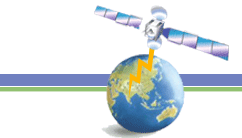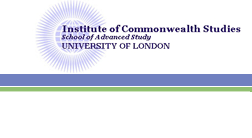| Satellites
over South Asia: Broadcasting, Culture and the Public Interest By
David Page and William Crawley (Sage, India 2001)
Preface
and Acknowledgements
The arrival of satellite television in south Asia brought radical
change not just for the viewing public but for all those working
in the media with an interest in the region. For the BBC World Service,
with whose radio services to the region we worked for twenty years
, it brought the need for a radical re-appraisal of strategy. Our
own interest in the implications of satellite television for south
Asia arose from our involvement in the BBC's efforts to reposition
itself to meet the new challenges. We also found ourselves talking
about the new media to audiences outside the BBC - in British universities
and to other broadcasting organisations. By the time we left the
BBC, it had become a subject we were both keen to pursue.
At a personal level, we have brought to the study our training as
historians and our experience as political analysts and radio broadcasters.
In probing the cultural influences of television, we have drawn
heavily on the expertise of others. Our emphasis has been on exploring
the views both of people with special knowledge and members of the
public. We have provided the framework of analysis, but we believe
the value of the book lies in the cogency and diversity of their
views on key issues of public interest raised by the new media.
We declare an interest as former BBC broadcasters in public service
broadcasting as a valid ideal. However, we do not suppose that ideals
and models transfer easily from one country to another. In fact,
this book shows clearly that they don't. The ethos of broadcasting
tends to reflect the state of civil society at a particular time
and place; it is only changed if the society itself wishes to change
it. In Britain, the ideal has been under attack since the 1980s
from the same commercial ethos which is now being reproduced in
south Asia and elsewhere. To that extent, Britain's experience is
not without interest. Our aim in this study, however, is not to
prescribe British solutions for South Asian problems but to explore
the new issues of national and regional public interest which have
emerged in the region in the satellite era.
We have chosen to speak of 'public interest' rather than 'public
service'. In south Asia, the concept of public service has been
so closely linked to the state's own use of the media that there
is little clarity about its meaning. We believe, however, that broadcasting
has a key role to play in the development of representative institutions
and civil society in south Asia and that public opinion needs to
be mobilised to make it more effective in this field.
The book concentrates on the five main countries of south Asia.We
have not included in the study either of the two smallest south
Asian states.- the Maldives or Bhutan. When the project was started
Bhutan had no state television; the trigger for change was to make
the 1998 World Cup accessible to football enthusiasts in that deeply
traditional society. The Maldives have a single channel state television
service, with no indication of any plans to diversify or reform.
Though many of the issues we look at seem relevant to the Maldives,
for practical reasons we did not attempt to extend our research
agenda there.
In writing the book, we were convinced that the phenomenon needed
to be examined from a regional perspective. We also knew that it
would only be possible to do justice to the subject if we could
build a team of research associates with local knowledge and expertise.
We were fortunate that the Ford Foundation in New Delhi liked the
idea and offered us funding to pursue it. Terry George gave us an
encouraging first hearing. David Arnold and Gowher Rizvi, as directors
of the Delhi office, have both taken an interest in our progress.
However, we owe a special debt to Sharada Ramanathan, the officer
for media and culture, who helped us to shape our proposal, encouraged
us to think of a documentary film on the same themes, attended our
workshops and made a big difference by putting her faith in us.
We are also grateful to Professor James Manor of the Institute
of Development Studies at Sussex University who provided us
with an institutional base for our activities. John Sanders and
Sue Pafford of the IDS Finance department have administered our
finances with promptness and understanding.
Our primary debt in writing the book is to the research associates
with whom we have worked. Their knowledge and experience have been
our guide in interpreting developments in their countries and regions,
in saving us from error and in putting us right on nuances of culture
or interpretation. Though our names appear on the cover, it is their
book as much as ours.
The project began at a workshop in New Delhi in February 1998 at
the India International Centre, where we formulated an agreed programme
for research over the following six months. We met again in July
in the offices of Panos South Asia in Kathmandu to tell each other
what we had learnt and to begin the process of interpretation, refinement
and further research. Between the two workshops, both of us visited
our research associates in their home territory and worked with
them on the project. In January 1999, we held three more small workshops,
in Chennai, Delhi and Islamabad, at which early drafts of some of
the chapters were discussed. During the writing of the book in 1999,
we were in regular touch with the team by e-mail and benefited from
their comments as the work took shape. A small amount of additional
research was done during this period to take account of new developments.
The research agenda involved first of all the compilation of media
profiles on the different south Asian countries. These were descriptive
accounts of the state of broadcasting, which covered the legislative
framework, the history, operations and reach of public and private
broadcasters and their performance in news and current affairs,
entertainment, development, education and health. The profiles also
documented reactions to the new satellite media and assessed emerging
market trends. In total, over four hundred interviews, which are
listed in the bibliography, were conducted by us or our associates
over a period of two years.
In addition to the interviews with experts, we arranged focus group
discussions with six categories of people to gauge public reactions
to satellite programmes in a number of key areas of cultural influence:
language, dress, music, sport, cultural practices, patterns of consumption,
social relations and the impact on women and children. Six district
surveys were also carried out, three in India and one each in Bangladesh,
Nepal and Sri Lanka, to measure reactions at different levels of
society outside the metropolitan cities. In total, 110 discussions
were carried out, which are listed by country, region and category
in the bibliography, accompanied by a fuller description of the
methodology.
India was divided into four regions, which were researched from
Delhi ( Mohammed Firoz), Calcutta (Anuradha Mukherjee) , Chennai
( Lata Ramaseshan and Pritham Chakravarty) and Mumbai. Because of
India's size and centrality, we appointed three Indian research
associates with specific briefs: the economics of the new media
market ( Mayank Bhatt) , the role of government (Saibal Das Gupta)
and the cultural influence of the satellite channels ( Deepa Bhatia).
Though they worked only on India, their expertise fed into the work
of other members of the group. Bangladesh (Afsan Chowdhury), Nepal
(Deepak Thapa), Pakistan (Tasneem Ahmar) and Sri Lanka (Santhini
Jayawardena) were each researched by one associate.
Several others played an important part in the research process.
Kunda Dixit shared his knowledge of Nepal and south Asia and acted
as our host during the second workshop. We are thankful to him and
the staff of Panos South Asia for making that such a memorable and
useful experience. Nilu Damle carried out district surveys in Latur
and Varanasi and provided a model for others to follow. M.S.S.Pandian
helped to coordinate our research effort in Tamil Nadu after N.V.Sankaran
was obliged for personal reasons to withdraw from the team. A.S.Panneerselvan
of Outlook wrote a background note and conducted some interviews.
K.Babu conducted some discussion groups in Madurai. For the chapter
on 'Broadcasting and Community', Pritham Chakravarty compiled a
report on cable systems in south Chennai and M.J.R.David wrote a
brief history of community broadcasting in Sri Lanka. In Pakistan,
M.F. Memon contributed a report on the cable systems of Karachi.
Subir Bhaumik, with the assistance of Anirban Roy and Shankadweep
Choudhury, researched the influence of satellite in Assam, conducting
interviews and carrying out discussions with students, university
lecturers and others.
We thank all these colleagues for the insights and experience they
brought to the project, for their assistance, guidance and hospitality
to us on visits and for their patience in responding to a stream
of e-mail queries and telephone calls during the writing of the
book.
We are very conscious that in writing the book we have unable to
use directly a great deal of excellent material which has been generated
by the research. Many of the reports and discussion groups merit
publication in their own right. Our plan is to make some of this
material available on the Internet.
Nupur Basu has been commissioned to produce a documentary film about
the impact of the satellite revolution and the issues raised by
the project. We are confident that the film will help to give these
issues wider currency.
We took advice from many people in setting up the project, recruiting
our research associates and completing the work. It is impossible
to mention them all but we are specially grateful to the following:
In Bangladesh: Ataus Samad, Farouk Ahmed Choudhury, Syed Shamsul
Haq, Frances Harrison. In India : Amit Agarwal, M.J. Akbar, Indrani
Bagchi, Shailaja Bajpai, Somnath Banerji, Prem Behl, Shekhar Bhatia,
Urvashi Butalia, Subhash Chakravarti, Dr B.S. Chandrasekhar, P.C.Chatterji,
Anurag Chaturvedi, Pramit Pal Chaudhuri, Anil Dharkar, Rajeshwar
Dayal, Prof P.S. Deodhar, Sucharita Eashwar, Sheeba George, Bhaskar
Ghose, Dipankar Ghosh, Nilanjana Gupta, Shekhar Gupta, Dr. Kiran
Karnik, Kumar Ketkar, Smruti Koppikar, Narendra Kumar, Amita Malik,
Indira Mansingh, Hima Mehta, Anjan Mitra, Rekha Mody, Eileen Mozoomdar,
Ashis Nandy, P Narayanmoorthy, Sevanti Ninan, Saeed Naqvi, Mahesh
Pande, Mrinal Pande, H.Y.Sharada Prasad, Sam Rajappa, N. Ram, Chanchal
Sarkar, Amin Sayani, Bhabani Sengupta, Akhila Sivadas, Kalpana Sharma,
Jayashree Shidore, Nandan Unnikrishnan, G.T.Verghese, Prof J.S.
Yadava.
In Nepal: Kanak Mani Dixit, Bharat D.Koirala, Kedar Man Singh, Barbara
Adams.
In Pakistan: Zaffar Abbas, H. Aftab Ahmed, Khaled Ahmed, Hameed
Asghar, Aslam Azhar, Dr Mubarak Ali, Zubair Ali, Farhan Bokhari,
Roshan Dhunjibhoy, Mushtaq Gazdar, Hameed Haroon, Javed Jabbar,
Altamash Kamal, Shahid Malik, Tahir Mirza, Gulrez Mojiz, M.B.Naqvi,
Agha Nasir, I.A.Rehman, Khwaja Ijaz Sarwar, Amera Saeed, Aziz Siddiqui,
Raana Syed.
In Sri Lanka : Hilmy Ahamed, Sharmini Boyle, Elmo Fernando, H.M.Gunasekera,
Nalaka Gunawardene, Victor Gunawardena, Amal Jayasinghe, Shirley
Perera, Suren de Silva, Jayadeva Uyangoda and Livy Wijemanne
In the United Kingdom: The late Athar Ali, Hugh Hope-Stone, Naresh
Kaushik, Sampath Kumar, the late Alan Macdonald, Nimal and Ranjani
Mendis, Graham Mytton, Ashis Ray, Achala Sharma, Anandhi Suryaprakasan.
We would like to thank the staff at the India Office and Oriental
reading room of the British Library and at the library of the School
of Oriental and African studies; also Anne Davies, then librarian
at the World Association of Christian Communication in London.
Several organisations invited us to contribute to discussions on
the media in Asia. William Crawley is grateful to Elizabeth Smith,
Secretary General of the Commonwealth Broadcasting Association,
and Vijay Menon and his colleagues at the Asian Media Information
and Communication Centre (AMIC) in Singapore for invitations to
AMIC/CBA conferences in Singapore in February 1998 and Delhi in
April 1999; and to Kenji Miyakage of NHK Public Affairs in Tokyo.
David Page would like to thank the Heinrich Boll Foundation for
an invitation to a conference in Karachi on Globalisation in February
1998 and Panos South Asia for the opportunity to attend a seminar
on Public Service Broadcasting in Kathmandu in September 1998.
In our travels to different parts of south Asia, we enjoyed the
hospitality of family and friends and benefited from their knowledge
of regional politics and media.
William Crawley would like to thank Shafik and Taleya Rahman and
F.R.Mahmud Hasan and Shamse Hasan in Dhaka, Natarajan and Nirmala
Sundaram in Chennai and Satish and Anju Bedi in Mumbai. He is also
grateful to K.K Sharma and Bulbul Sharma, Joysree Mukherjee and
Dr. Ashok Mukherjee for their hospitality during the eight months
he spent in Delhi in 1998 and on numerous occasions before and since;
and to Arunabh Mukherjee for help in transcribing interviews.
David Page owes special thanks to Alauddin in Lahore, Ismail and
Sarwat Niazi in Islamabad, Sayeed Hasan Khan in Karachi, Mark Tully
and Gillian Wright in Delhi, Colonel C.B. Ramesh and Indira Ramesh
in Bangalore, Ruma and Samaraditiya Pal in Calcutta and Roland and
Carmen Edirisinghe in Colombo.
Thanks also need to be given to those who read parts or all of the
book during the writing stage. Our research associates have seen
and commented on the passages relevant to their own research. Professor
Anthony D.King made valuable comments on drafts of six of the chapters.
David Morley provided useful feedback on the Introduction. Pradip
Thomas and M.J.R.David read and commented on chapter 9. Ijaz Gilani
of Gallup Pakistan and Indrani Sen of Hindustan Thompson in Calcutta
provided important media research updates as the book went to press.
We are also very grateful to Sevanti Ninan and Shailaja Bajpai in
Delhi and Stephen Hughes in London, whose comments and criticisms
of the completed draft we have attempted to take into account in
the final version of the book.
Tejeshwar Singh of Sage has been immensely helpful and supportive
in accepting the book for publishing and keeping us up to the mark
to meet a tight deadline. We should also like to acknowledge the
encouragement we received from Tim Farmiloe at an earlier stage
of the project.
Finally, our sincere thanks to our families and friends, particularly
Bonny and Ruth, who have put up with our absences and given us much
needed support and encouragement.
Doing the research and producing the book has been a stimulating
experience. We have shared the work equally at every stage. William
Crawley completed first drafts of chapters 3, 4, 8 and 10; David
Page of the remainder. But the different drafts have changed computers
many times since then and the final result is an agreed text which
expresses our joint view. Our debts to so many people do not absolve
us of the responsibility for the shortcomings that remain.
David Page
William Crawley
8 May 2000
|












